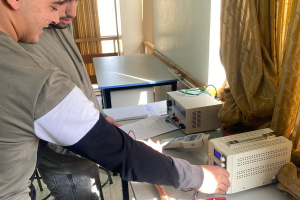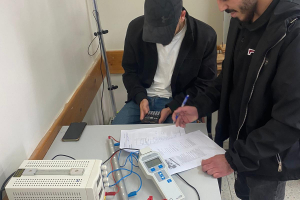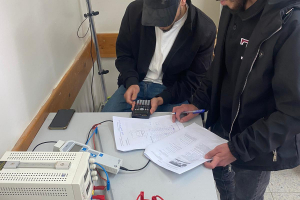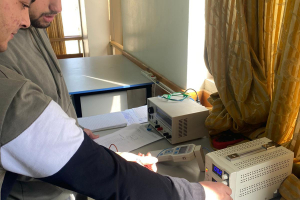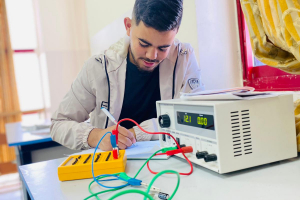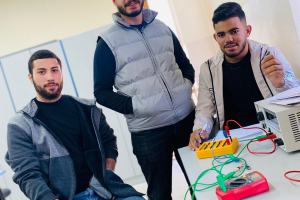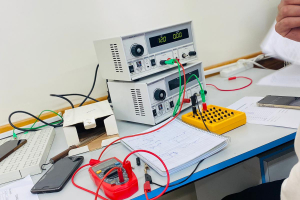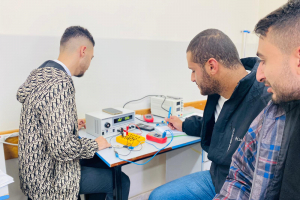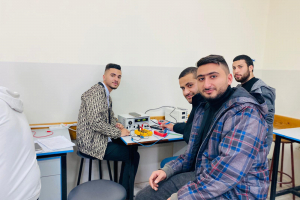In alignment with the scientific study programs across the university's colleges, Palestine Polytechnic University takes pride in its numerous laboratories catering to various disciplines. Among these facilities is the Physics 2 Laboratory, which focuses on practical applications related to the subject of Physics 2. The laboratory encompasses fundamental topics such as electrical measuring devices and the construction of both simple and complex electrical circuits, comprising twelve distinct experiments.
Capacity: The laboratory can comfortably accommodate 18-20 students per session.
Skills emphasized in the Physics 2 Lab:
- Ability to work collaboratively within a team:
- Ability to use electrical quantity measuring devices.
- Ability to connect simple and complex electrical circuits.
- College of Applied Sciences: Specializing in Physics, Chemistry, and Mathematics.
- College of Engineering: All engineering study programs.
- College of Information Technology and Computer Engineering.
- College of Applied Professions: Specializing in Telecommunications, Industrial Automation, and Automotive.
|
Function |
Devices / tools |
|
It is used to measure several things : 1-measure current 2- measure voltage 3- measure resistance |
-Digitalmultimeter |
|
-measure low current |
Galvanometer- |
|
-multi function (measure low voltage, temperature … |
-Mobile cassy |
|
-supply circuits with voltage |
-Power supply |
|
-apply different values of resistance |
-Decade resistors |
Students are briefed on the significance of the experiment to be conducted and are furnished with requisite guidance and aid in the event of any malfunction jeopardizing the safety of students or equipment. Additionally, fire extinguishers are readily accessible in each laboratory.
Abdel Razzaq A. Abu Zenah
Maram Bseileh
Nora Hroob
|
Experiment Title |
Experiment |
|
DMM ( Digital Multimeter) |
1 |
|
Applications on Ohm's Law |
2 |
|
Electric Field and Equipotential Surfaces |
3 |
|
Effect of Temperature on Resistance |
4 |
|
The Mechanical Equivalent of Heat |
5 |
|
The Whetstone Bridge |
6 |
|
Charging and Discharging a Capacitor |
7 |
|
Maximum Power Transfer Theorem |
8 |
|
Construction of Voltmeter |
9 |
|
Electrical conductivity |
10 |

